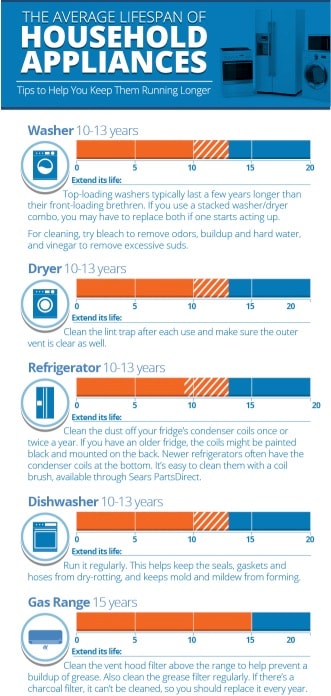How long should your appliances last?
Not as long as they used to, but with some TLC, you can extend their lives
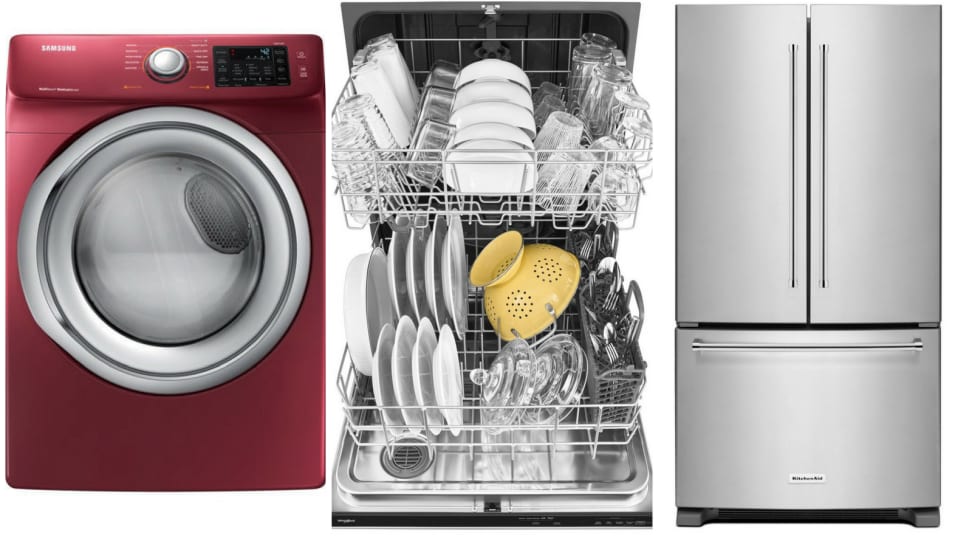 Credit:
Samsung / Whirlpool Corporation
Credit:
Samsung / Whirlpool Corporation
Recommendations are independently chosen by Reviewed's editors. Purchases made through the links below may earn us and our publishing partners a commission. Prices were accurate at the time this article was published but may change over time.
We often hear from readers who want to know how long their appliances are supposed to last. The implication is always that modern appliances kick the bucket too soon.
It’s true that most appliances you buy today will die faster than the ones your grandmother owned years ago. Her appliances were in it for the long haul, and probably lasted 25 years or more. While you can still buy a Speed Queen washer that has a commercial-grade construction that's made to last for decades, in our tests, it didn't perform as well as many modern washers.
If you want to make sure you get all the useful life out of your appliances, we’re here to help. We talked to Adrienne Berrain-Normann and Travis Robertson, experts from Sears Home Services, about appliance life expectancy. Here are some tips they shared to help you maintain your appliances, so they work for as long as possible.
Are appliances worse or more expensive than they used to be?
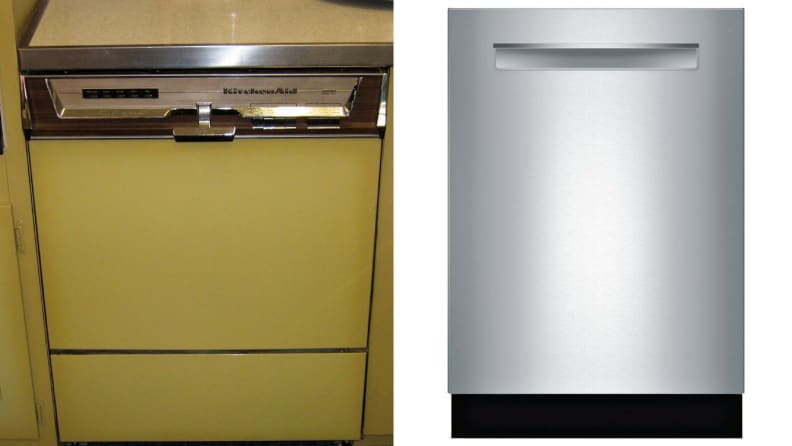
The answer is not that simple. The appliances on the market today are not the same ones your grandma could buy, even if they have the same name on the front. Brands have consolidated. So, for example, Maytag, whose old commercials featured a chronically unneeded repairman, is currently owned by Whirlpool, and so is KitchenAid.
The current generation of appliances actually cost about 33% less than they used to, in proportion to average income. In addition to the change in pricing, appliances are also built differently than their old school counterparts. They have fewer metal parts, and more plastic ones. They are lighter in weight, which keeps shipping costs down, but they’re less durable. Electronic controls have, in many cases, replaced mechanical controls. Since the 1990s, many refrigerators have automatic icemakers, which are frequently the first components to fail.
Dishwasher Lifespan: 10-13 years
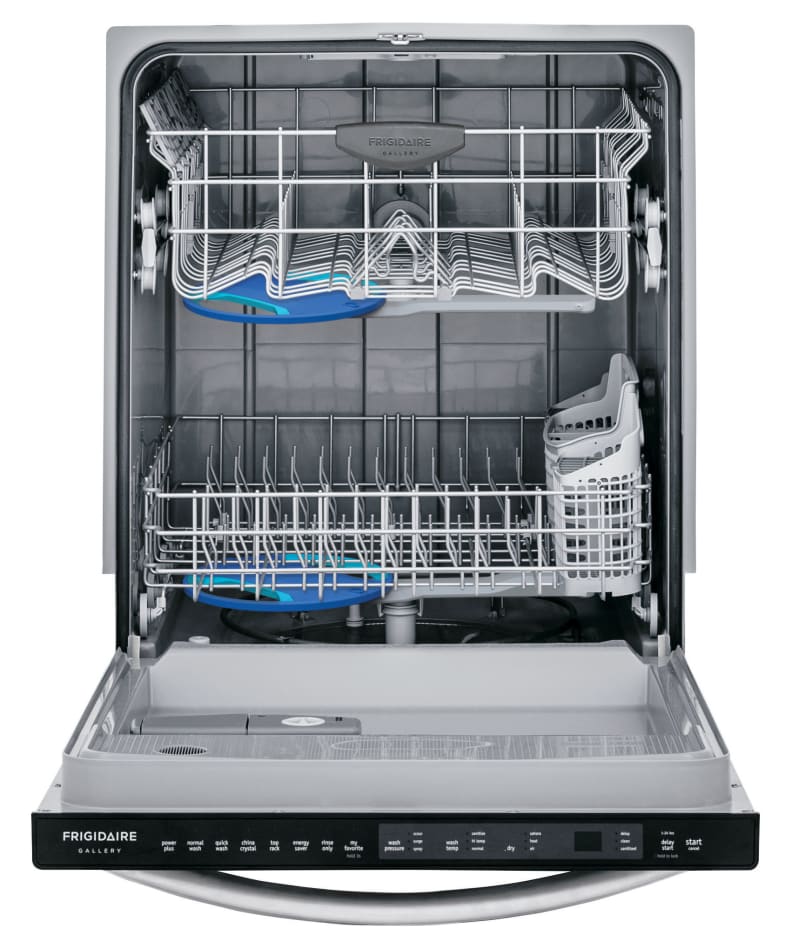
Old time dishwashers had macerators to grind up food. Modern dishwashers (see our favorite dishwashers) have filtration systems that you need to maintain.
Pro tip: While you don't have to pre-wash your dishes before putting them in the dishwasher, you should always scrape dishes before loading them. If you see food particles redeposited on your plates, it can mean that the filter is filled with gunk. Every couple of months, reach in, remove the filter, and clean it with a soft bristle brush. Be diligent about this—severely clogged filters can cause odor issues and draining problems.
Washing Machine Lifespan: 10-13 years
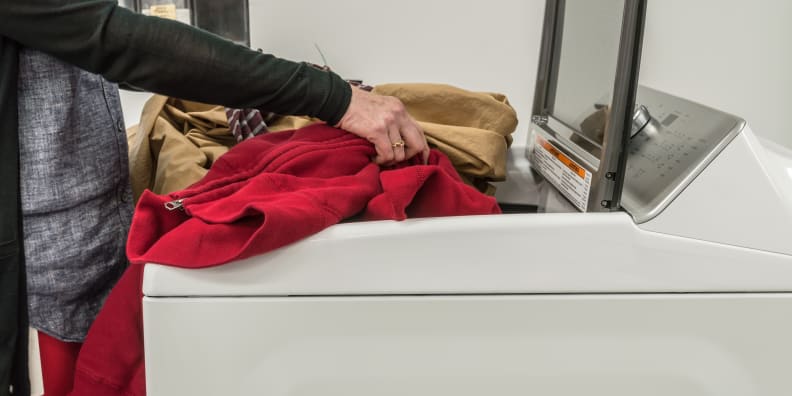
Top-loading washers are still popular, and they may last longer than their front-loader counterparts. Even though front-loaders are more efficient, their rubber door gaskets can get moldy if you don’t maintain them.
Pro tip: Wipe a front-loader’s gasket after you’ve finished doing the laundry, and leave the washer door ajar between loads, so it can dry out. To reduce residue build-up in any washer, use low-sudsing HE (high-efficiency) detergent if your washer calls for it. Also, cut back on your use of liquid fabric softener.
Dryer Lifespan: 10-13 years
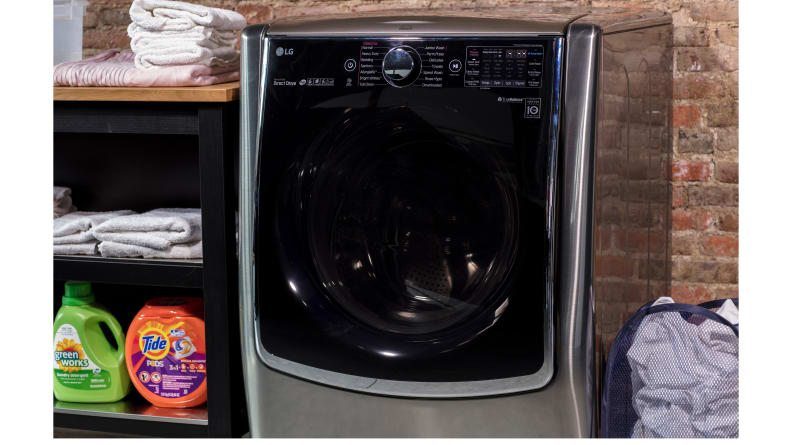
Dryers are not complicated—they’re heated boxes that tumble clothes, and they tend to last a long time. Check out our top-rated dryers and just move on with your life.
Pro tip: To prevent dryer fires, clean the lint trap every single time you use your dryer. This will help your clothes dry more quickly, too. The vent hose matters—those foil accordion-style hoses accumulate lint when they sag. A rigid metal hose is safer. And look for highly-recommended professional cleaners to clean your dryer vent once a year.
Oven Range Lifespan: 10-15 years
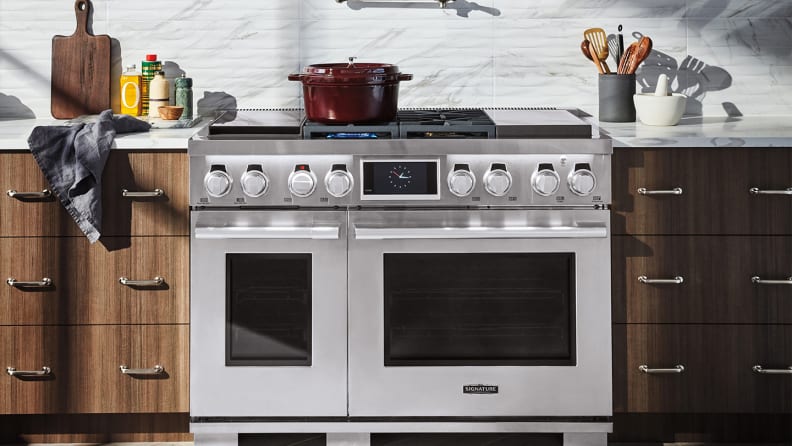
Gas ranges, which have fewer moving parts than electric ranges, typically last a few years longer. Here are some recommendations for both types of ovens.
Pro tip: Use a pin or a pipe cleaner to clear gas burner ports from time to time. Clean the vent hood filter regularly, too, to prevent grease built up.
Refrigerator Lifespan: 10 years
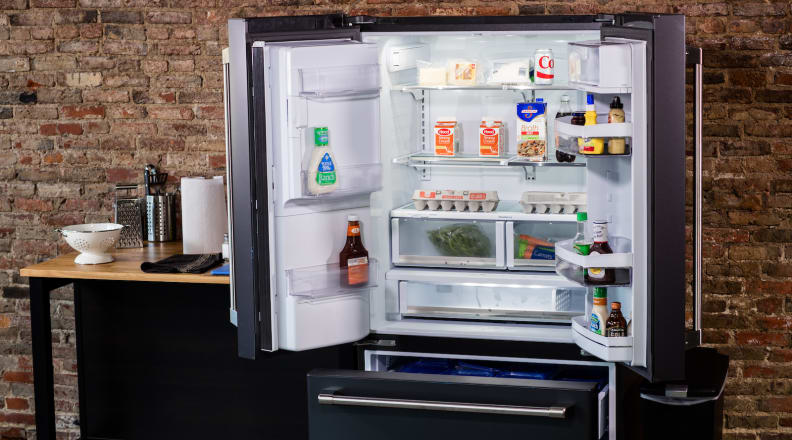
Since you rely on your refrigerator to keep food cold and safe to eat, it’s important for its temperature to stay in the right range: 37° for fresh food, and 0° for frozen food. A good refrigerator should be able to hit those numbers with no problem.
Pro tip: When condenser coils get dusty, they can’t push out hot air, causing the fridge to run continuously to keep its cool. Locate the coils, and dust them with a vacuum cleaner attachment or long brush a couple of times a year.
When to replace an appliance
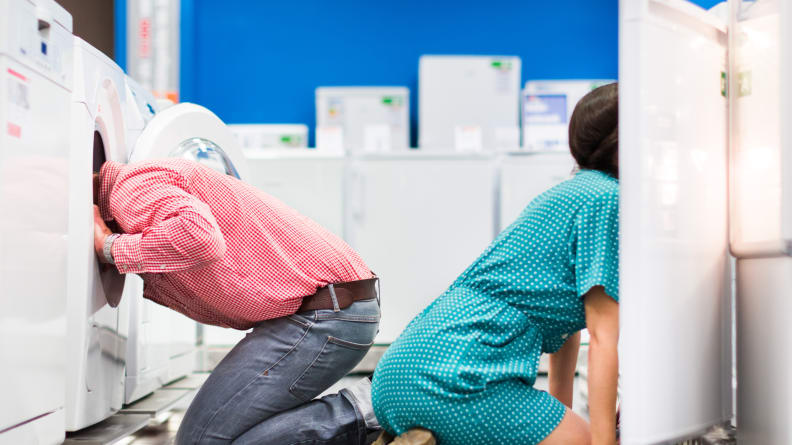
Usually, you’ll know when it’s time to replace an appliance. Either it quits working entirely, or presents problems that are more costly to fix than the unit is worth. Once the warranty expires, it's important to know approximately when you’ll need to by a new appliance, so you can budget for that eventuality.
Sometimes, you might choose to replace appliances that still have some life left in them, because your tastes in home decor have changed. An old side-by-side refrigerator in a bisque finish doesn’t look nearly as sharp in the kitchen as a stainless French door number.
And your personal standards can change, too. You probably aren’t willing to put up with the noise from an old dishwasher, when a modern one can be whisper quiet. As energy and water bills rise, you may want to replace your old washer with a high-efficiency model that uses less of both. Old appliances weren’t Wi-Fi compatible, so if you want to control your machine from your smart phone, you can buy a new one.
Making appliances last longer
Our experts suggested that you read user manuals—they're full of tips. If you can’t find the booklet anymore, a site like Manualsonline.com or Manualslib.com might come to your rescue. It’s important to understand how your appliances are supposed to work, because if you don’t know, you’re not getting all the life out of them. While you can't expect appliances to work forever, by doing some basic maintenance, you might be able to make them last a little bit longer.
